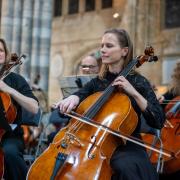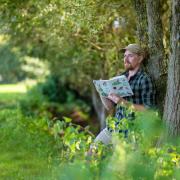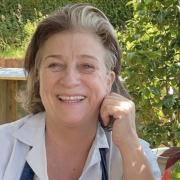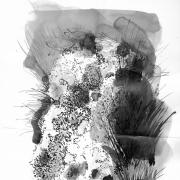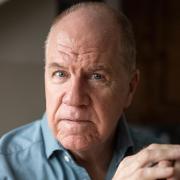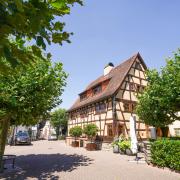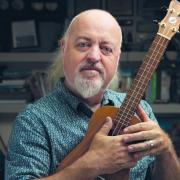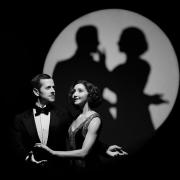There are some 5,500 Freemasons across 138 lodges in Devon. But how much do we know about them? As Freemasonry celebrates its 300th anniversary, Chrissy Harris went to meet some members of this fascinating organisation.

The first thing I did before entering Paignton Masonic Hall was to roll down my ankle-level trouser legs.
I’d hitched them up slightly because it was warm and that’s the fashion these days, so I’m told.
Then it hit me: these guys will think I’m having a laugh.
Because, like many people, I didn’t know a lot about Freemasonry but I did know that they do something with their trouser legs.
“Yes, the trouser leg forms part of the ceremonies,” says Ian Kingsbury, Provincial Grand Master of the Province of Devonshire Freemasons.
“But it’s telling a story. You roll both up to show that you’re not a slave, you’ve got no chains and open your shirt to show that you’re a man. Those are the basic reasons.”
Ah. And the secret handshake?
“There is a symbolic handshake between masons so they can recognise another mason,” says Ian. “But it’s in lodge and only in lodge. Not outside. That’s drummed home to people. The reason goes back centuries and it means that we can recognise each other by night and day.”
With those burning questions answered, the Devon Life photographer arrives and does a rather elaborate knock on the Hall door.
“I see he’s mastered the secret door-knock,” says Ian to his fellow Freemasons, before they all fall about laughing.
That’s the real revelation here. Hanging out with the Freemasons is actually a lot of fun. The centuries-old organisation has struggled with something of an image problem over the years with those not in-the-know associating Freemasonry with secrecy and being, well, a bit stuffy.
Nationally, membership numbers have fallen slightly and there is a drive to recruit younger men to secure the future of Freemasonry for generations to come.
This has involved a general culture of being more open to dispel some of the misconceptions about this once very covert society.
Today, members take part in roadshows, open days and there are even Freemasonry websites, Twitter and Facebook accounts to help publicise the incredible amount of good causes this organisation helps every year (they are the second largest charity donor in the country after the National Lottery.)
The transparency is working here in Devon and particularly at this lodge where there has been a steady stream of new younger members.
Limousine business-owner Martin Squires, 43, joined seven years ago after a friend recommended he try it.
Like all Masons, he had to go through a special initiation ritual in the lodge’s temple, where each member plays their role in a ceremony that has remained unchanged for 300 years.
There are symbolic ‘tools’ and insignia to represent the history of the Freemasons, which started with groups of stonemasons and was formalised when the first Grand Lodge was formed on 24 June 1717.
“I just liked it and stuck with it,” says Martin. “Part of it, you just think, my gosh, that’s really strange but the more you learn, the more you realise why.
“Everybody has to go through the ceremony and that’s what brings you all together as a team. I was trying to think of ways to explain it as I was coming over here today and I suppose it’s like the New Zealand All Blacks rugby team and their Haka. There they are, these big blokes on the rugby pitch and they’re all doing this ‘pat-a-cake’ type dance. I mean, what is that about?
“But it lowers inhibitions. They all do it together and everyone’s the same. That’s what I like about Freemasonry. You don’t have to put on a persona, you don’t have to stand there and be cool or look big and tough. You can come through that door and completely relax.”
There is much talk of camaraderie, of being with like-minded people and a strong sense of almost military-like brotherhood among Freemasons.
The younger members are said to look up to their older ‘brethren’, who often act as mentors, offering guidance on the masonry journey that takes the men through the different ‘degrees’ and ranks. The highest position in Devon is Provincial Grand Master (PGM) who reports to the Grand Master of England, Prince Michael of Kent.
PGM Ian Kingsbury, a former engineer and pub owner, says it was all a lot different when he joined in 1968.
“You were encouraged to tell your family but not discuss the actual ritual, whereas now, my wife probably knows the ritual better than I do.
“What’s that?” he says, after being heckled by a fellow mason. “Well, yes, actually, everybody knows the ritual better than I do!”
So there are no big secrets here, then. Just a group of guys who look out for each other, meet up once a month for an historic ceremony followed by a formal dinner and then spend a lot of time helping people less fortunate than themselves. All charity donations come from members.
Some elements have changed but the principles of Freemasonry are the same now as they were 300 years ago.”
Why the big secret?
Freemasonry ‘went underground’ during the Second World War because of Nazi German opposition to the organisation.
After the war, the tradition of secrecy carried on. Some members say this was a big mistake and the organisation is trying to change.
Celebrating 300 years: the diary of Freemasonry events:
10 April: Tercentenary launch and banner dedication at the Provincial Grand Lodge annual general meeting at the Riviera Centre in Torquay.
24 June: Service of thanksgiving at Exeter Cathedral.
2 July: Charity garden party at Ugbrooke House.
20 August: Passing the banner ceremony on Exeter Cathedral Green
21 to 25 August: Jurassic Coast youth adventure camp. The Freemasons are sponsoring 16 disadvantaged children going to a camp in Dorset.
23 September: Passing the banner ceremony beside the Tamar Bridge.
17 December: Carol service at St Mary’s Church, Plympton.



